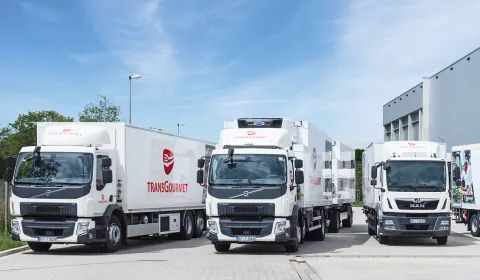Custom mobile app development
Engaging user experience on the go
Full-cycle mobile app development services
Mobile apps are important for businesses aiming to build long-lasting relationships with their customers. Our goal is to help you reach your audience across all touchpoints and deliver exceptional user experiences. We offer full-cycle mobile app development services and create innovative, high-quality apps tailored to your business needs.
![]()
Full-cycle mobile app development
![]()
Native apps
![]()
Hybrid apps
![]()
Modern technology stack
Our approach to a mobile app development process
The mobile application development process typically involves several phases, from conceptualisation to deployment and maintenance. With our team of experts, we ensure smooth execution from start to finish and work closely with you to meet all your business requirements.
7 phases of the mobile app development process
1. Idea generation and research
This initial phase involves brainstorming ideas for the app and conducting market research to understand user needs, competition, and market trends. It's important to identify the target audience and define the app's unique value proposition.
2. Analysis and planning
In this phase, we outline the app's features, functionality, and technical requirements. This includes creating user stories, wireframes, and prototypes to visualise the app's design and user experience. It is important to define the technology stack and platform (iOS, Android, or both) for development.
3. UX / UI design
The design phase focuses on creating the visual and interactive elements of the app. This includes UI (User Interface) design, where designers create the layout, colours, typography, and visual elements, as well as UX (User Experience) design, which focuses on optimising the app's usability and accessibility.
4. Development
Once the design is finalised, developers begin coding the app based on the defined requirements and design specifications. This stage involves frontend development (client-side programming) for the user interface and backend development (server-side programming) for the app's functionality, data storage, and integration with external services.
5. Testing
Testing is a critical phase to ensure the app functions as intended and is free of bugs and errors. This includes various types of testing such as functional testing, usability testing, performance testing, and compatibility testing across different devices and platforms.
6. Deployment
After successful testing, the app is ready for deployment to the app stores (e.g., Apple App Store, Google Play Store). This involves preparing the necessary app store listings, including descriptions, screenshots, and promotional materials, following the guidelines and procedures set by the app stores for submission.
7. Support and maintenance
Once the app is live, the development team continue to provide support, monitor app performance, and address any issues or bugs reported by users. Regular updates and maintenance are essential to keep the app functional, secure, and compatible with new operating system versions and devices.
Case study: mobile app development
Native apps for Transgourmet & Selgros
In order to offer an exceptional shopping experience to Transgourmet and Selgros customers, we have developed native mobile applications, catering to both B2B and B2C groups.

Other services
Drupal development
360° Drupal development services from certified Drupal experts.
React development
React development services for creating dynamic web and mobile applications.
AI applications
Custom development of AI-driven applications for your business.